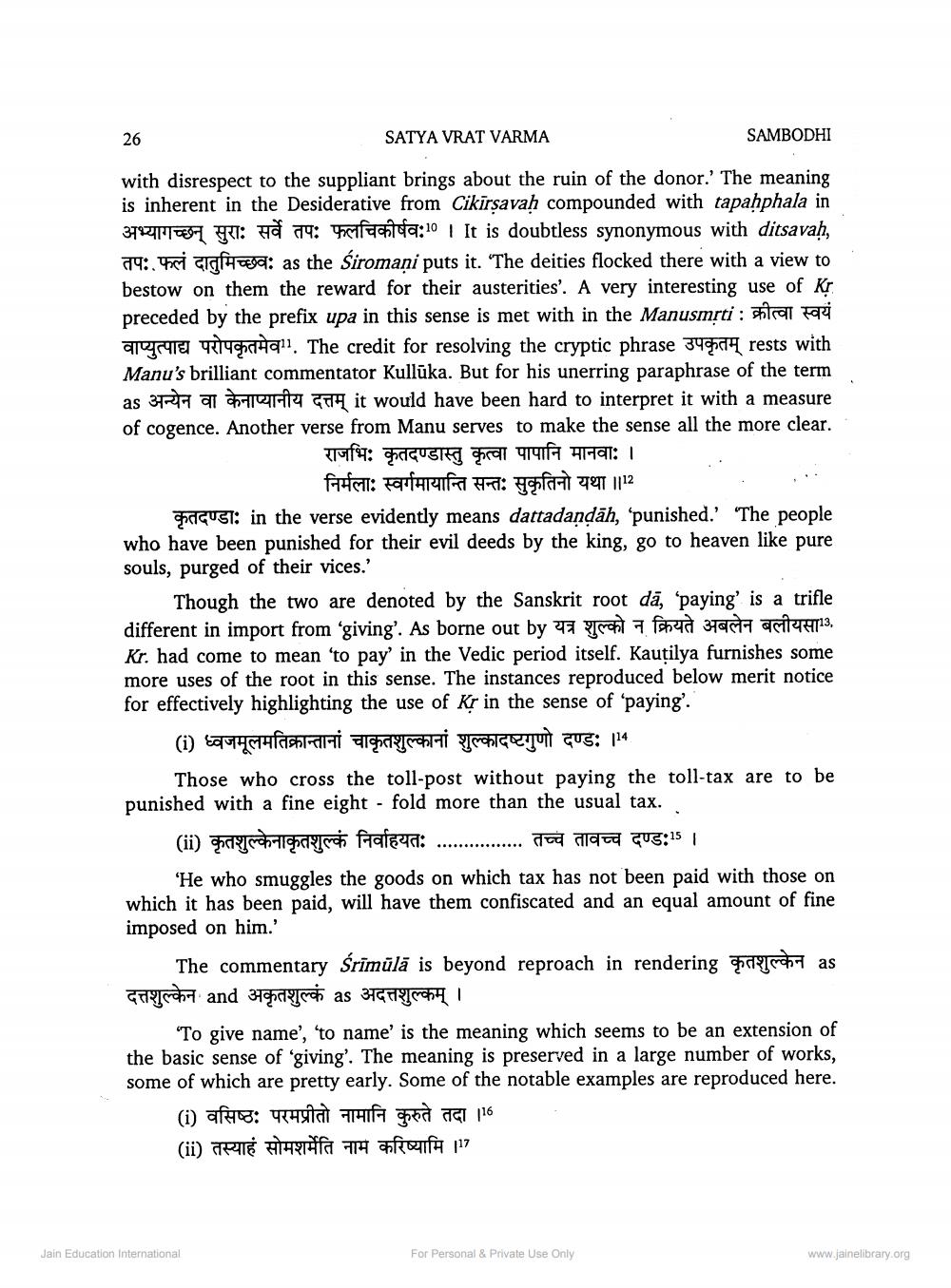________________
26
SATYA VRAT VARMA
SAMBODHI
with disrespect to the suppliant brings about the ruin of the donor.' The meaning is inherent in the Desiderative from Cikīrşavah compounded with tapahphala in 37821100 T: 79: falda:10 | It is doubtless synonymous with ditsavah, 09. ggfoga: as the siromani puts it. The deities flocked there with a view to bestow on them the reward for their austerities'. A very interesting use of Kr preceded by the prefix upa in this sense is met with in the Manusmrti: cal toe वाप्युत्पाद्य परोपकृतमेव1. The credit for resolving the cryptic phrase उपकृतम् rests with Manu's brilliant commentator Kullūka. But for his unerring paraphrase of the term as 37 a abru Guh it would have been hard to interpret it with a measure of cogence. Another verse from Manu serves to make the sense all the more clear.
राजभिः कृतदण्डास्तु कृत्वा पापानि मानवाः ।
निर्मलाः स्वर्गमायान्ति सन्तः सुकृतिनो यथा ॥12 nagusi: in the verse evidently means dattadandāh, “punished.' "The people who have been punished for their evil deeds by the king, go to heaven like pure souls, purged of their vices.'
Though the two are denoted by the Sanskrit root dā, paying' is a trifle different in import from 'giving'. As borne out by a forud 3tant acitrari3, Kr. had come to mean 'to pay in the Vedic period itself. Kautilya furnishes some more uses of the root in this sense. The instances reproduced below merit notice for effectively highlighting the use of Kệ in the sense of 'paying'.
(i) qoymufti Hi algerli yechicerut cus: 114
Those who cross the toll-post without paying the toll-tax are to be punished with a fine eight - fold more than the usual tax.
(ii) zainstaligaynon frafera: .............. Non doa qus:15 |
'He who smuggles the goods on which tax has not been paid with those on which it has been paid, will have them confiscated and an equal amount of fine imposed on him.'
The commentary śrīmūlā is beyond reproach in rendering graag met as Garch and dynot as 3G icon
"To give name', 'to name' is the meaning which seems to be an extension of the basic sense of giving'. The meaning is preserved in a large number of works, some of which are pretty early. Some of the notable examples are reproduced here.
(i) aft: at the dood l 116 (ii) TRE TARHfa 79 of 117
Jain Education International
For Personal & Private Use Only
www.jainelibrary.org




